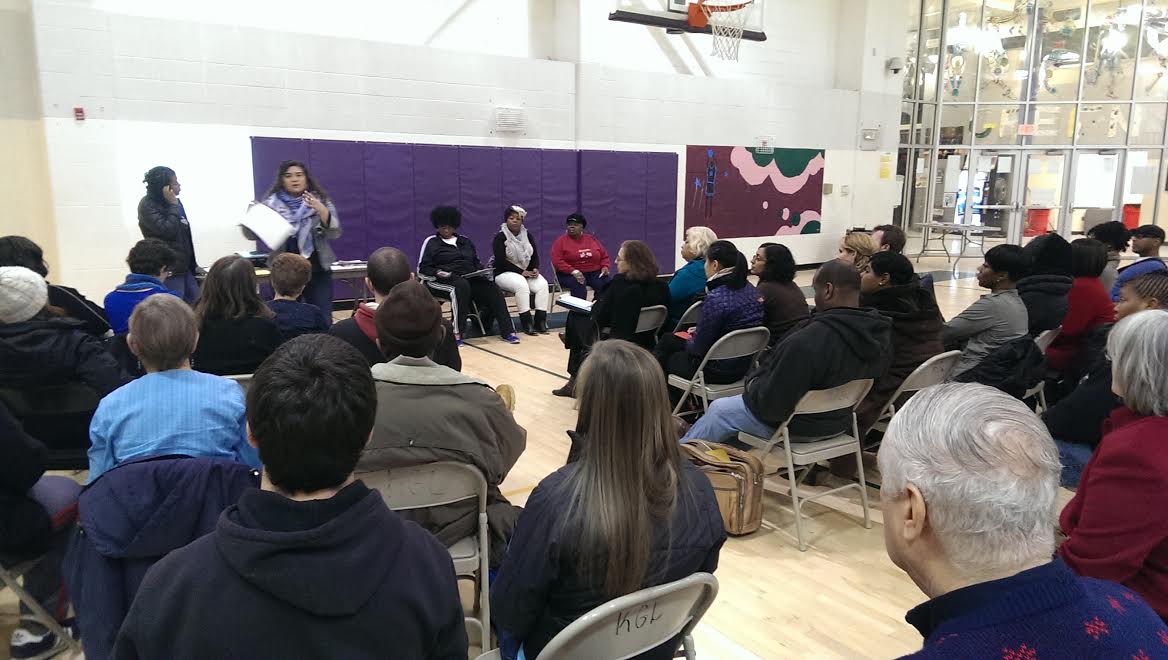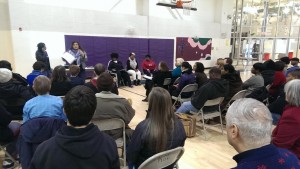
On Monday, January 27th, over sixty Southwest residents came into the auditorium of the Greenleaf Recreation Center for a forum on preserving public housing hosted by SWNA and Empower DC. The first section of the event, presented by Schyla Poindexter-Moore of Empower DC, shared many facts about public housing, from the first housing projects in 1937 to the present. The second part of the presentation was a panel discussion among three women who live in Greenleaf, Barry Farm, and the former Arthur Caper Homes.
The event highlighted the importance of public housing for DC’s low-income families and ensuring mixed-income neighborhoods. Public housing serves a mix of incomes: from those unable to work due to disability and seniors, to adults working full-time or more at low-wage jobs. Unlike other types of “affordable housing,” public housing is the only type of housing for low-income families that is truly responsive to a family’s ability to pay. Every resident pays 30% of their monthly income on rent, abiding by the HUD definition of housing affordability.
DC’s public housing stock has been diminished from 20,000 to 8,000 units currently. For years, the DC Housing Authority has neglected maintenance, repairs, and capital developments. A common justification for demolishing or “redeveloping” public housing is the condition of the buildings, even though the agency has not properly maintained existing buildings serving current residents.
Our public housing in Southwest is at risk, with Greenleaf marked for “redevelopment” as soon as the city can get funding to support the project. However, the presentation and the speakers stressed the importance of preserving and expanding the city’s public housing and shared examples of how badly recent attempts at redevelopment have impacted residents in other neighborhoods. People who are displaced from public housing face instability and a devastating loss of community. The speakers shared a number of stories about friends and neighbors who had fallen into depression when forced to move from their homes and the elderly who had passed away alone shortly after being separated from their community.
We have an opportunity to come together in Southwest to support our neighbors in Greenleaf and to advocate for preserving and expanding public housing in our community. As we engage in discussions around the Small Area Plan and other types of development in the area, we should keep in mind that if Greenleaf is to be redeveloped, the plan must be developed with active involvement of residents and respond to their needs.
By: Sian OFaolain


